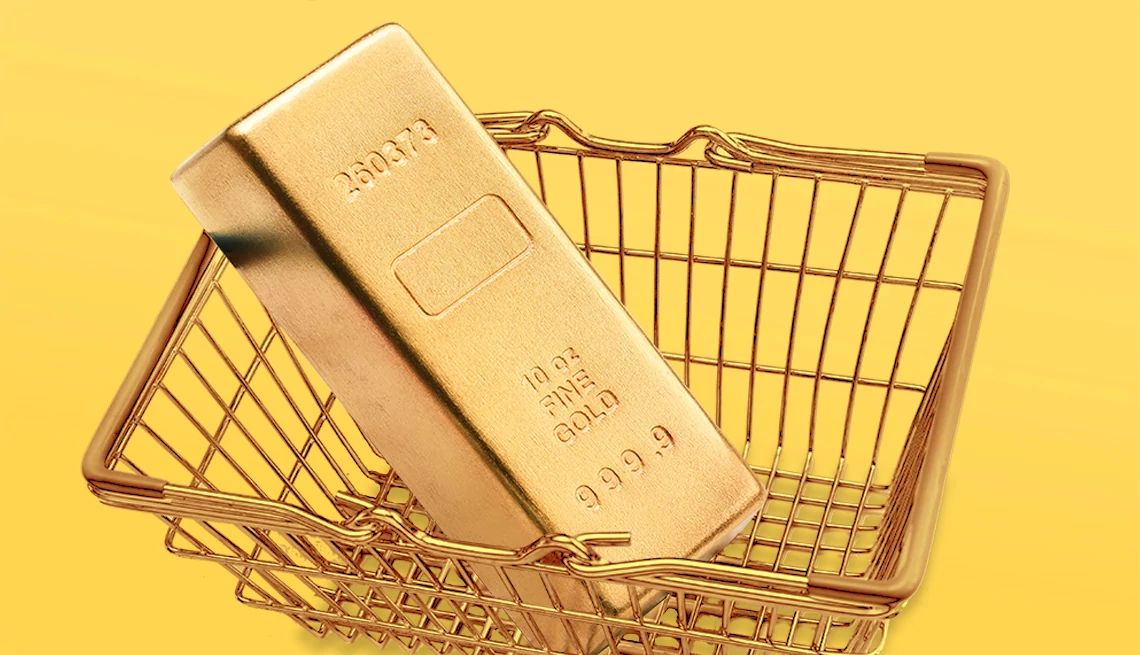AARP Hearing Center
John Waggoner,
Gold has been prized for both its monetary value and its beauty for centuries. The yellow metal is also prized for its scarcity: All the gold in the world would form a cube roughly 75 feet high, according to the U.S. Geological Survey. And with inflation still elevated, gold is also being touted as a hedge to stay ahead of rising prices. The price of gold is up around 16 percent year-over-year and is nearing record highs. It’s no wonder that gold, which was selling for around $2,400 an ounce on April 19, has become a hot commodity.
But investing in physical gold has two big problems: how to buy it and where to store it. When you buy gold, you must make sure that it really is gold, not painted lead, and that it’s the correct purity, as measured in karats (24-karat gold is pure gold; 18-karat gold is 75 percent gold). For that reason alone, the gold market has been rife with fraud. Mark Twain supposedly said that a gold mine was a hole in the ground with a liar standing next to it.
Once you have your gold, you have to figure out where to store it. If you keep it at home, a thief could walk away with your investment. If you put it in a bank safe-deposit box, you’ll have to buy additional insurance, because those boxes aren’t covered by federal deposit insurance. And if you have someone else store it, you’ll need to pay them for the service and make sure they are a legitimate business, not some guy with a very lucrative P.O. box.
When you buy gold, then, you have to be sure you’re getting gold, and you may also have to hire someone to protect it. Plus, throughout the transaction there are plenty of ways to spend more than you should — or get taken entirely. Here are some of the worst mistakes people make when buying gold, and advice on how to avoid making them.
1. Buying too much
Scammers prey on investors’ fear of financial ruin and their hope that one investment can save them. Gold, with its reputation as an inflation hedge, is just the ticket for stoking fear in investors as well as belief in the promise of outsize gains. The combo is a big hit for shady gold dealers but can be a disaster for you. Joe Rotunda, director of the enforcement division at the Texas State Securities Board, says that in cases of gold fraud, fear and greed often compel investors to sink a large percentage of their savings into gold. “These are not individuals who have a lot of assets — they are looking to preserve what they have and live a comfortable retirement,” he says. Instead of listening to your emotions, try to figure out whether gold would fit into your overall financial picture. Five to 10 percent of your portfolio may be about right, according to financial planners, but probably no more.

































































